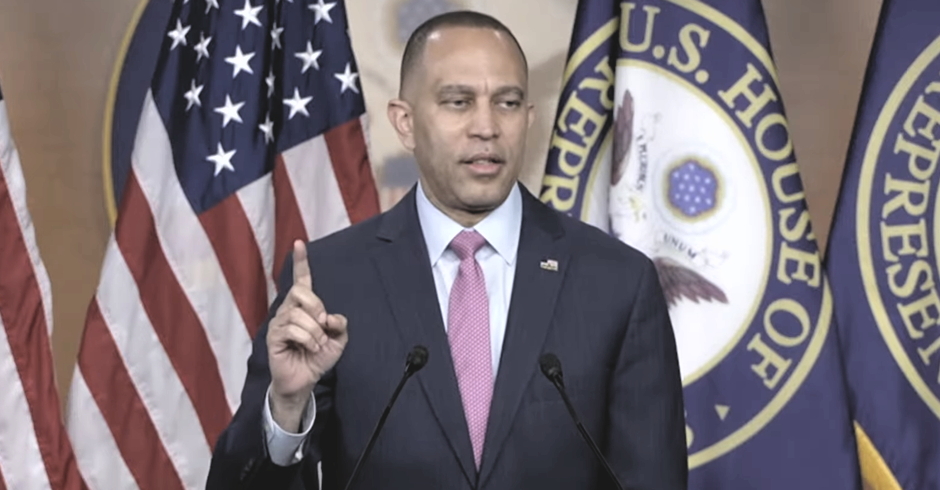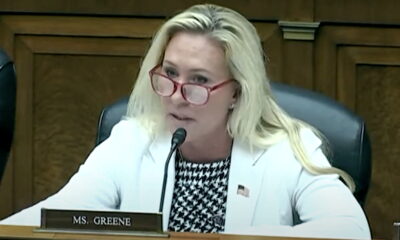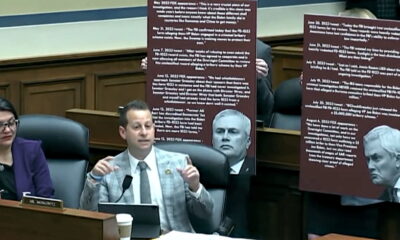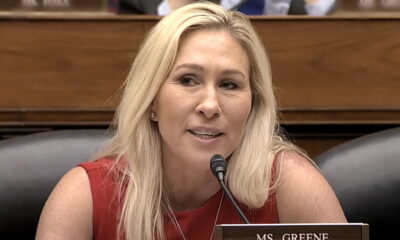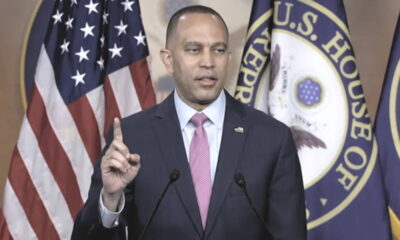Happy Constitution Day!
Gay Marriage Is Not A States’ Rights Issue
Unless you’re currently in school, where our “Socialist” government forces (gasp!) all federally-funded educational institutions to devote time and resources — yes, your burdensome tax dollars! — to educate (read: “indoctrinate”) students about the Constitution, you probably aren’t aware that today is Constitution Day.
Constitution Day, formally known as, “Constitution Day and Citizenship Day,” was created to recognize the ratification of our Constitution, and to acknowledge all those who have become citizens of our country. (One assumes Barack Obama, although he’s a Socialist and a Communist, will not be celebrating, of course, as he is not a citizen!)
OK. Enough with the sarcasm. Down to business.
The U.S. Constitution is an elegant, elastic creation that has guided and inspired us since it was signed into being 222 years ago, in 1787. And no, I don’t agree with it all, but, like Donald Rumsfeld might say, you don’t run a country with the Constitution you want, you run a country with the Constitution you have.
And yes, a lot has changed since it was written. But the principles in our Declaration of Independence – upon which our country were founded: life, liberty, the pursuit of happiness – haven’t.
So, let’s talk about gay marriage.
Gay marriage, same-sex marriage, marriage equality, whatever we want to call it, bottom line, it’s marriage. Someday, we’ll be able to say “marriage” unequivocally and without qualification.
The Supreme Court affirmed, in 1967, that marriage is, indeed, a civil right. In the unanimously-decided Loving v. Virginia, the U.S. Supreme Court stated,
“Marriage is one of the “basic civil rights of man,” fundamental to our very existence and survival…. To deny this fundamental freedom on so unsupportable a basis as the racial classifications embodied in these statutes, classifications so directly subversive of the principle of equality at the heart of the Fourteenth Amendment, is surely to deprive all the State’s citizens of liberty without due process of law. The Fourteenth Amendment requires that the freedom of choice to marry not be restricted by invidious racial discrimination. Under our Constitution, the freedom to marry, or not marry, a person of another race resides with the individual and cannot be infringed by the State.”
Make the obvious switch from racial terms to identity and orientation terms and the result is, well, obvious.
The Fourteenth Amendment to the U.S. Constitution includes this passage:
“…nor shall any State deprive any person of life, liberty, or property, without due process of law; nor deny to any person within its jurisdiction the equal protection of the laws.”
Surely marriage is both a “basic civil right” and a “protection of the law?”
The much-heralded, upcoming Supreme Court case, brought by Ted Olson and David Boies, will challenge California’s Prop 8 on two important Constitutional cases.
Romer v. Evans, the Supreme Court case that ruled against a Colorado constitutional amendment that had prohibited state protections for homosexual citizens. And Lawrence v. Texas, which struck down sodomy laws in Texas, and, therefore, in the United States.
So, where is all this taking us?
The battle for marriage equality has been fought at the state level, for several reasons. Many have said marriage is a states’ rights issue. Others have been disinclined to bring a case to the U.S. Supreme Court, concerned that a judgment against marriage equality by the conservative court would establish precedent that would be even more difficult to overturn.
Marriage is not a states’ rights issue. Marriage, as determined in Loving, is a civil right. Civil rights are not states’ rights, but federal. It is the FBI, for example, that investigates civil rights abuses. Civil rights are, simply, federal.
And we’ve been wrong to fight this battle at the state level. It is, in fact, a Constitutional issue.
Nevertheless, that’s what we’re stuck with. For now. Because at some point, and probably not in January, when the Boies-Olson case will be brought before the Supreme Court, but at some point enough states will offer full marriage equality to make Article Four — U.S. Constitution’s full faith and credit clause — the elephant in the room.
Repeal of DOMA will make this more likely, as DOMA allows (unconstitutionally, in my opinion) states and the federal government to ignore the legal and judicial proceedings of other states.
Which is all the more reason why it is critical we support, and work very hard to ensure that the “Respect for Marriage Act,†introduced into Congress on Tuesday, is passed and signed into law.
The Constitution is an elastic instrument. It is not a black and white document without room for interpretation.
We will win marriage equality. It may be via language already in the Constitution. It may be via Congressional legislation. It may be, sadly, one state at a time. The one thing I do know: it will not be via inaction.

Enjoy this piece?
… then let us make a small request. The New Civil Rights Movement depends on readers like you to meet our ongoing expenses and continue producing quality progressive journalism. Three Silicon Valley giants consume 70 percent of all online advertising dollars, so we need your help to continue doing what we do.
NCRM is independent. You won’t find mainstream media bias here. From unflinching coverage of religious extremism, to spotlighting efforts to roll back our rights, NCRM continues to speak truth to power. America needs independent voices like NCRM to be sure no one is forgotten.
Every reader contribution, whatever the amount, makes a tremendous difference. Help ensure NCRM remains independent long into the future. Support progressive journalism with a one-time contribution to NCRM, or click here to become a subscriber. Thank you. Click here to donate by check.
 |


